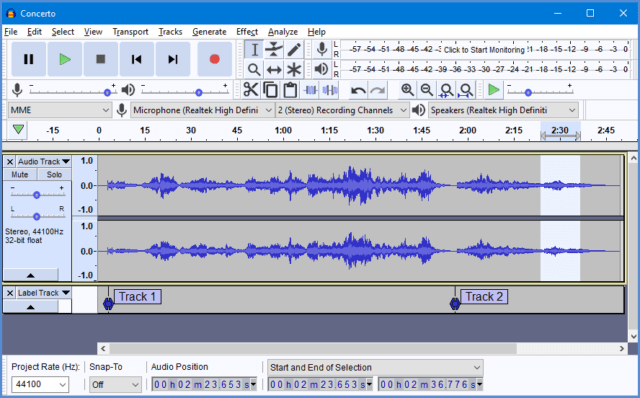Audacity is a widely used free and open-source digital audio recording and editing software that has attracted a large and faithful following over two decades. However, following Audacity’s acquisition in May this year by Russian-based company MuseGroup, the software has been steeped in controversy. The main points of concern are added telemetry and what many see as a vague and worrying Privacy Policy.
MuseGroup’s decision to include telemetry (data collection) in Audacity is based on two new features the company intends to introduce in the next version which, if following Audacity’s traditional version numbering, should be version 3.0.3. The two upcoming new features are ‘automatic updates’ and ‘error reporting’. The current version (3.0.2) doesn’t include any such telemetry because it does not include these networking features.
According to MuseGroup’s updated Privacy Policy, the following data will be collected:
- OS version
- User country based on IP address
- OS name and version
- CPU
- Non-fatal error codes and messages (i.e. project failed to open)
- Crash reports in Breakpad MiniDump format
- Data necessary for law enforcement, litigation, and authorities’ requests (if any)
As a result, users intending to download the upcoming new Audacity version are being warned that the software may now be classed as spyware. The two items in the list of collected data that are causing much criticism are the IP address and data necessary for law enforcement. However, I would make the following observations:
User country based on IP address: According to MuseGroup, the user’s IP address is salted and retained for only 24 hours after which it is irretrievable.
Data necessary for law enforcement, litigation, and authorities requests: Is being criticized for lack of clarity/details. However, considering the software is used in many countries worldwide, all with differing privacy requirements/laws, it would be nigh on impossible to determine and delineate exactly what data is lawfully required per country. So, the vagueness is pretty much out of necessity.
Is Audacity Spyware or Not – My take on it
I say not. I don’t see anything in the list of collected data that is out of the norm — nothing more, and in many cases far less than popular applications are already collecting. Furthermore, according to MuseGroup, users will be able to opt out of the telemetry required for automatic updates, and telemetry required for error reporting will be opt-in. Personally, I see the addition of automatic updates and error reporting as beneficial and it’s simply a matter of fact that both require a certain amount of telemetry
Much of the outcry is emanating from within the Audacity community, which I can perfectly understand. It’s only natural to be apprehensive when a popular open-source program suddenly announces an update to its privacy policy after being around for two decades but, in the big picture, most people are likely already using products that collect a lot more data than Audacity, with hardly a second thought.
You also might like:
- How To Merge MP3s Using Audacity
- How To Increase MP3 Volume in Audacity
- How To Record Internet Radio with Audacity



So, how is this really different than Microsoft Office or Adobe Suite? I no longer use either, but I have software that automatically checks for updates. Seems like a lot of fuss over NOTHING.
I only install the old reliable versions of Office and won’t be upgrading Audacity. The only reason they are doing this is so they can spy on those using one of the only apps that can record from a Loopback. THat in effect allows them to record IN-inhibited any and all content from the internet. So I’ll bet you a Dollar bill they will start fining or indicting anyone using the new software for copyright violations. Especially in music.